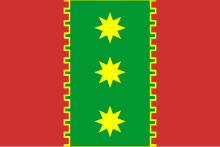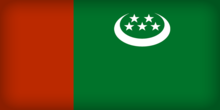Loading AI tools
Northeast Caucasian ethnic group From Wikipedia, the free encyclopedia
Tabasarans are a Northeast Caucasian ethnic group native predominantly to southern part of the North Caucasian republic of Dagestan. Their population in Russia is about 150,000. They speak the Tabasaran language. They are mainly Sunni Muslims.
You can help expand this article with text translated from the corresponding article in Russian. (August 2013) Click [show] for important translation instructions.
|
 | |
 | |
| Total population | |
|---|---|
| c. 155,000 | |
| Regions with significant populations | |
| 151,466[1] | |
| 977[2] | |
| Languages | |
| Tabasaran | |
| Religion | |
| Sunni Islam | |
| Related ethnic groups | |
| Northeast Caucasian peoples | |
The earliest mention of the Tabasarans are found in 7th century Armenian sources referring to them as an independent people of Dagestan. Arab historians referred to their land as "Tabarstan". In the 8th century, the Arabs conquered parts of the Caucasus including the territory of the Tabarsarans. In the 15th century, the Tabasrans formed a powerful principality called the Maisumat of Tabarsaran. However, the state was eventually divided into two due to internal struggles and both were conquered by the Russians in the early 19th century.[3]

The main language of the Tabasaran people is the Tabasaran language (табасаран чIал, tabasaran ҫ̇al),[4] which belongs to the Lezgic branch of Northeast Caucasian language family. It is closely related to neighbouring Lezgian and Aghul languages.[5] UNESCO classifies Tabasaran language as "vulnerable".[6] According to 2002 Russian census 97% of the Tabasaran can speak their ancestral language and a further 87% of them know Russian.[7]
Under Soviet control Tabasaran has become one of the official languages of Dagestan.
The vast majority of Tabasarans profess Sunni Islam and belong to the Shafi'i school. Some elements originated from pre-Islamic Tabasaran beliefs, such as deity names and annual spring celebration known as Elbetsan (parallel to Iranic Nowruz and Lezgian Yaran-Suvar) have been preserved in the contemporary Tabasaran society.[7][8]
Tabasaran traditional economy has been based on agriculture and animal husbandry, as the regions inhabited by the group have a mild and warm climate with abundant water sources. Agriculturally grain farming, orchards and viticulture is common among the people. Carpet weaving, leatherworking, woolen clothes, woodworking and beekeeping form the domestic industries.[7]
Seamless Wikipedia browsing. On steroids.
Every time you click a link to Wikipedia, Wiktionary or Wikiquote in your browser's search results, it will show the modern Wikiwand interface.
Wikiwand extension is a five stars, simple, with minimum permission required to keep your browsing private, safe and transparent.